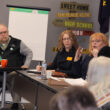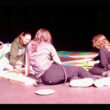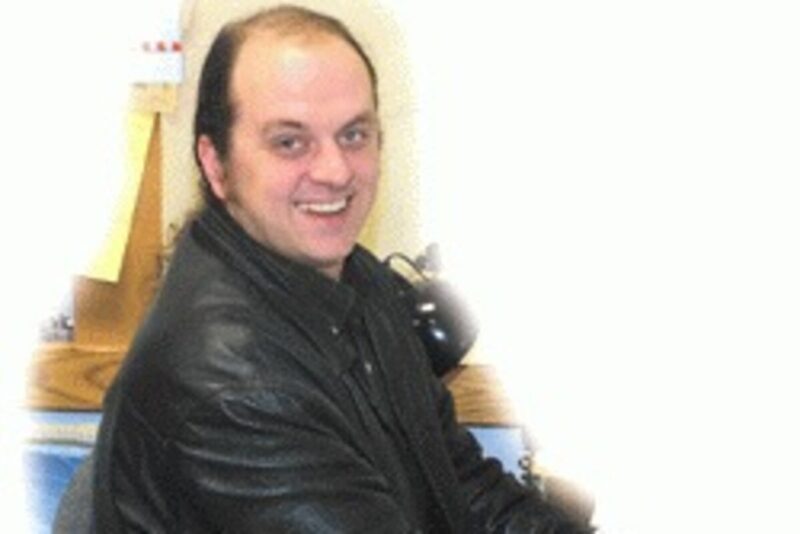The Sweet Home City Council should revisit the social gambling issue and change its ordinance to allow the social gambling that T owner Frank Chau requested.
The council turned it down over thin fears that allowing social gambling in Sweet Home will burden an already overworked police department while it is dealing with financial shortfalls. Councilors added two more equally thin reasons for not allowing Chau and other businesses in Sweet Home to host poker tournaments.
At least one councilor couldn’t get around his own moral and social opposition to gambling. Another councilor didn’t see where it would benefit the community, so he opposed it.
In emails and information gathered from about 20 other cities around the state, only a couple reported having problems at all with social gambling. One was an incident in 1989 in Estacada, which no longer allows social gambling.
Presumably, the council fears that card players may drink too much, get into fights or perhaps steal private property to pay for gambling debts. Exactly what problems it will create for law enforcement has not been defined.
Sweet Home has at least seven places that serve alcohol, not to mention grocery stores, convenience stores and a liquor store. These places no doubt add to law enforcement call loads, but even with these, we’re only talking about a handful of calls each year.
If police responded to one call a month related to social gambling at a commercial establishment, they would add only a dozen calls to their load, which was upward of 9,000 calls for 2004. More than that seems unlikely, especially in light of the reports of other Oregon cities.
If the concern is monitoring the establishment to make sure it is not taking a cut, every business follows a number of regulations that are not directly monitored by any regulatory agency. Rather, a violator is usually reported to appropriate agencies.
Police should have no need to continually check on businesses to make sure they comply with the law. The city should trust its businesses to follow the law, investigating them if a complaint or reason to suspect a business arises.
Social gambling would hardly be a problem for law enforcement. The implication that it likely would be a problem is an insult to poker players and Sweet Home businesses.
Jim Bean sees no benefit to the community arising from changing the ordinance. The argument ignores a definite benefit to the community and its members, but even if it didn’t, the argument should not be raised. Any number of hobbies and pastimes really do not benefit the community as a whole.
In any case, social gambling will provide benefits to at least Chau if he can make it work for him. It will benefit gamblers who now go out of town or hold tournaments in their homes. These are just a few of the individuals it will benefit. They are all members of our community. If they benefit, then Bean should support this.
If Bean means the community as a whole, Bean is suggesting that anything we do should benefit the community, and that if it does not benefit the community, we shouldn’t be allowed to do it. This socialism is inappropriate in the United States or anywhere for that matter. None of us should be required to live our lives in service to the collective against our will.
Dick Hill was concerned about the moral, social and financial issues. Financial issues are not a concern if the activity doesn’t generate a major impact on law enforcement.
The social and moral issues are intertwined. Because he is a pastor, he said at one point, he must oppose social gambling in Sweet Home. Of all the councilors, I probably have the most in common with Pastor Hill, but my own moral compass is not the same one that guides other folks.
Pastor Hill suggests that we regulate proper, moral behavior. He might as well support an ordinance requiring everyone to be in church Sunday morning and banning alcohol. We have no need to stop there either. We can pass ordinances regulating perfect, moral behavior.
Wait, we can’t. Our first amendment allows us freedom of religion. That doesn’t mean we have to take the word God out of our public discourse or the pledge of allegiance, but it does mean that folks are certainly free not to have their lives regulated according to the moral and religious codes of its governing class.
Chau and the gamblers who will frequent his establishment obviously do not share Pastor Hill’s religion or moral code. Let’s leave the issue between those folks and God. Passing an ordinance to permit social gambling is not the same as condoning the behavior. It is simply recognition that the state does not have the right to control the religious and moral behavior of its citizens.
He is concerned about social issues. Again, the argument is not compelling. Banning bars and eliminating alcohol completely would do more to solve our social problems, even if we legalized social gambling.
The only argument raised by councilors is whether social gambling will harm those who are not participating in the behavior. Their belief that it might is a thin excuse to avoid change or a controversial decision.
Five members of the council opposed even finding out if it might raise law enforcement problems. Tim McQueary and Jessica Coward offered a limited version of Chau’s request, one that would allow permits one at a time for specific events; but the rest of the council turned down even this chance to find out.
Chau asked the council to hold a public hearing. The council didn’t even go that far. Instead of asking publicly what the people of Sweet Home think, Jim Gourley asked 55 people, 35 by phone and 20 directly, what they thought. Fifty of those folks opposed social gambling, so Gourley opposed the change.
Gourley must be kidding about this, that somehow such lopsided results on the subject could represent the feelings of all of his constituents. We can’t really know that answer until the city votes or the council at least holds a public hearing.
The council should return to this issue and consider it rationally then allow Chau to proceed. Barring that, the council should, at a minimum, hold a public hearing.





